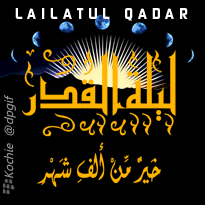In this article we will cover the Eid dua taqabbal which the companions of Allah’s Messenger used to say to each other for congratulations on Eid.
“Taqabbala Allahu minna wa minkum.” (“May Allah accept from us, and from you.”).
This comes from hadith which was narrated that Jubayr ibn Nufayr who said:
- If anyone greets you with the greeting “Taqabbal Allahu minna wa minkum” you should reply with the same greeting “Taqabbal Allahu minna wa minkum”. And Allah alone knows the best. I ask Allah to make this a sincere effort, seeking his pleasure, and I ask him to grant us refuge in him from the evils within ourselves, and that in our deeds.
- We pray for peace and blessings on all the noble messengers and in particular on the last of them all “the blessed prophet Mohammad (pbuh)” If anyone greets you with the greeting “Taqabbal Allahu minna wa minkum” you should reply with the same greeting “Taqabbal Allahu minna wa minkum”. And Allah alone knows the best.
With regard to the greeting on the day of Eid, which people say to one another when meeting after the prayer, “Taqabbal Allaahu minna wa minkum wa ahaalahu Allaah ‘alayka (May Allaah accept (this worship) from us and from you and may you live to see another Eid)” etc, this was narrated from a number of the Sahaabah who used to do that. Taqabbal Allahu minna wa minkum (May Allah accept the fast and worship from you and from us) - Ameen. We would like to take this opportunity to tell you ALL that we love you for the sake of Allah (Subhanahu wa Ta'ala)!:) Please forgive us if any of our posts/comments have ever hurt you.
When the companions of the Messenger of Allah (peace and blessings of Allah be upon him) met one another on the day of Eid, they would say to one another: “Taqabbal Allahu minna wa minkum”.
Al-Haafiz said: Its isnaad is hasan (meaning the chain of narration is good).
Offering congratulations in this way is acceptable , you could also say Eid mubarak. Imam Ahmad (may Allah have mercy on him) said: There is nothing wrong with one man saying to another on the day of Eid: Taqabbal Allaahu minna wa mink.
In Arabic The Eid Dua is written:
تَقَبَّلَ اللهُ مِنَّا وَمِنكُم
Transliteration: Taqaballahu minna wa minkum
Here are other common transliterations to help with pronunciation:
Jawaban Taqaballahu Minna Wa Minkum
- Taqabbal allahu minna wa minkum
- Taqabbalallahu minna wa minkum
- Taqabbal-Allâhu minnâ wa minkum
- Taqaballahu Minna Wa Minkum
Taqaballahu minna Translation:
The meaning behind this dua is “May Allah accept [good deeds] from you and us” or “May Allah accept [this worship] from you and us”.
Reply To Someone Who Says This:

The common reply to someone who says “Taqabbalallahu minna wa minkum” to you is to respond back with the same, “Taqabbalallahu minna wa minkum”. You can also say Ameen, or Khair mubarak to you.
If you’re reading this on Eid day, then Eid mubarak to you and your family. Hope you fill your bellies and have a day filled with laughter and joy. May Allah grant you and your family success and make you among the righteous.
Continue Learning More With Post On Eid Takbeer
Answer:
Taqabbalallahu Minna Wa Minkum Arab
بسمالله الرحمنالرحيم
We begin with Allah’s blessed name, we praise him and we glorify him, seek his forgiveness and ask him to guide us. Whoever Allah guides, None can lead astray and whoever he misguides, None can guide. There is no power and no strength except from Allah, The most high, the Most great, the most powerful. We bear witness that there is no one worthy of worship but Allah Alone, and we bear witness that Prophet Muhammad (pbuh) is His slave-servant and the seal of His Messengers. We pray for peace and blessings on all the noble messengers and in particular on the last of them all “the blessed prophet Mohammad (pbuh)”
Taqabbalallahu Minna Wa Minkum Meaning In Bengali
Taqabbal Allaahu minna wa minkum (May Allaah accept this worship from us and from you)
To the best of our knowledge the blessed prophet(pbuh) never recited the above phrase after completion of the congregation prayer nor did the rightly guided khalifas.
Taqabbalallahu Minna Wa Minkum Meaning Pertaining
Fiqh-us-Sunnah : Volume 2, Page 154a
Jabir ibn Nafir reports: 'When the companions of the Prophet met each other on the day of 'id, they would say to each other, 'taqabbal minna wa minka [May Allah] accept it from us and you.' Ibn Hajar said that its chain is hasan.
It is narrated that the companions of the blessed prophet (pbuh) used the above phrase on the occasion of eid to congratulate one another. It was a custom And the scholars like Imam Ahmad, Shaykh al-Islam Ibn Taymiyah, Shaykh Ibn ‘Uthaymeen are of opinion that, there is absolutely no harm in congratulating one another on the occasion of eid with this phrase.
Imam Ahmad said: I do not initiate this greeting with anyone. But if someone greets me in this manner I return his greeting. That is because returning a greeting is obligatory, but initiating this greeting is not a Sunnah , but neither is it forbidden.
Taqabbalallahu Minna Wa Minkum Meaning Reply
And Allah alone knows the best.